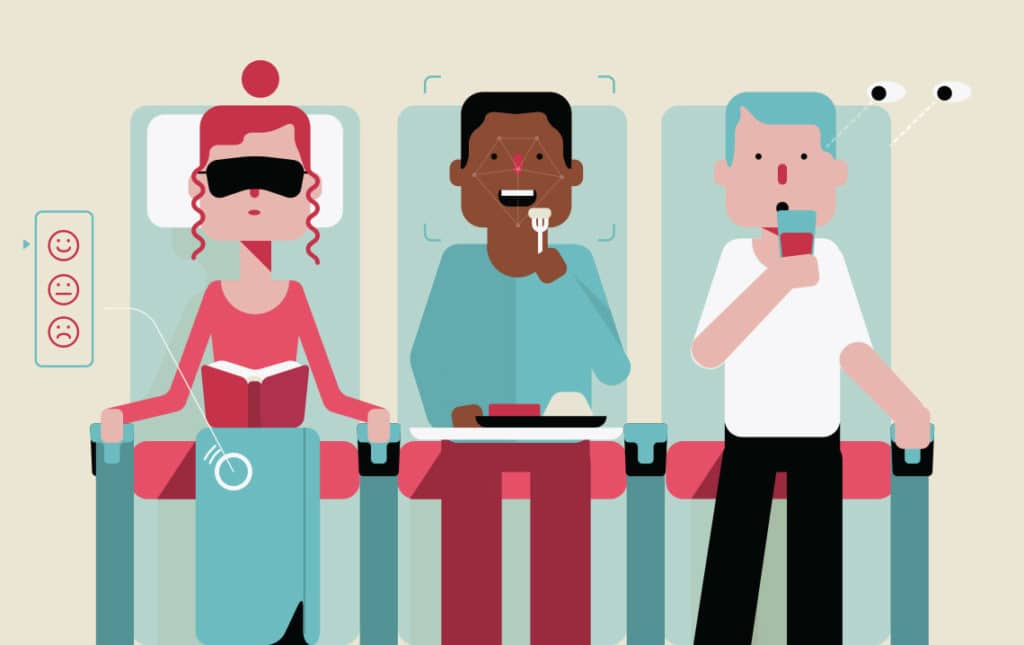Anthropological Approaches to Airline Product Development
Share

This article is an excerpt from “One Good Idea Deserves Another,” originally published in the Innovation Issue of APEX Experience magazine.
APEX Insight: What do rainforest creatures, Uber, smart glasses and the aerospace industry have in common? A few really good ideas. This
multipart feature looks at the power of industrious thinking, and how invention migrates from one industry to the next.
From British Airways’ sleep study and in-flight trials of sensor-equipped blankets (to test how well passengers rest) to Lufthansa’s evaluation of sonic impact on taste buds, science is helping to improve the flying experience.
For many years, airlines have relied on customer feedback through comments, focus groups and surveys to shape new product developments. Of late, the industry has resorted to more sophisticated study methodologies, and put technology to work on figuring out what pleases customers most.
Design psychologist Don Norman, author of The Design of Everyday Things, cofounder of the Nielsen Norman Group and director of the Design Lab at the University of California, San Diego, believes airlines should evaluate all in-flight products and services through anthropological study: by watching from a distance, rather than surveying. His reasoning is that humans are simply not self-aware enough to report reliably on themselves. He suggests airlines start with “observations of the way people feel,” monitoring behavior and subtle body language to record more genuine reactions to the cabin environment. Studies, he suggests, should be “experiential and concrete,” carried out through “extensive observation.”
Others are using technology for such objective studies, which reveal passenger satisfaction with surprising accuracy.
“People don’t think what they feel, feel what they think and do what they say.” €” Yener Giriken, ThinkNeuro Neuromarketing
Turkish Airlines carried out a comprehensive study of its customers with assistance from Yener Giriken of Turkey’s first neuro-marketing research company, ThinkNeuro Neuromarketing. Giriken applied neurosensors and eye-tracking technology to evaluate passengers’ “emotional bond curve” during the journey. Like Norman, Giriken believes humans are unreliable query subjects. “People don’t think what they feel, feel what they think and do what they say,” he says.
As this science advances, airlines will gain more precise insights to apply toward product improvements.


